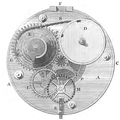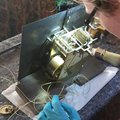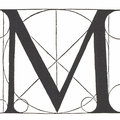Clickspring will host the Hack Chat on Wednesday, February 3 at noon Pacific.
Time zones got you down? Try our a handy time zone converter.
The reckoning of the passage of time has been of vital importance to humans pretty much for all our history, but for most of that time we were stuck looking at the movements of heavenly bodies or noting the changing of the seasons to answer questions of time. The search for mechanical aids to mark the passage of time began surprisingly early, though, pretty much from the time our ancestors first learned to work with metals.
Timekeeping devices were often created to please a potentate or to satisfy a religious imperative, but whatever the reason for their invention, these early clocks and calendars were key to a ton of discoveries. Timekeeping devices were among the first precision mechanisms, and as such formed the basis of much of our mechanical world. A mechanical representation of the passage of time also gave us some of the first precise observations of the physical world, which led to an enormous number of discoveries about the nature of the universe, not to mention practical skills such as navigation, which allowed us to explore the world with greater confidence.
In our era, precision timekeeping has moved beyond the mechanical realm into the subatomic world, and mechanisms built to please a prince are relegated to museums and collectors. That's not to say there isn't plenty to learn from the building of mechanical timepieces, as anyone who has watched any of the videos on Clickspring's YouTube channel can attest. Clickspring not only makes some magnificent modern timepieces, like his famous open-frame clock, but recently he's also branched out into the timekeeping mechanisms of the ancients. He built a reproduction Byzantine sundial-calendar, and tackled a reproduction of the famous Antikythera mechanism. The latter was undertaken using only the tools and materials that would have been available to the original maker. That led to an unexpected discovery and a detour into the world of scholarly publishing.
Clickspring has been busy lately, but he made some time to stop by the Hack Chat and talk about mechanical timepieces. We'll talk about his modern builds, his forays into the mechanisms of antiquity, and his serendipitous discovery. On the way we're likely to talk about what it takes to build precision mechanisms in a small shop, and whatever else that crops up.


















The Clock of the Long Now in Nevada...? How about a desktop/binary readout version?